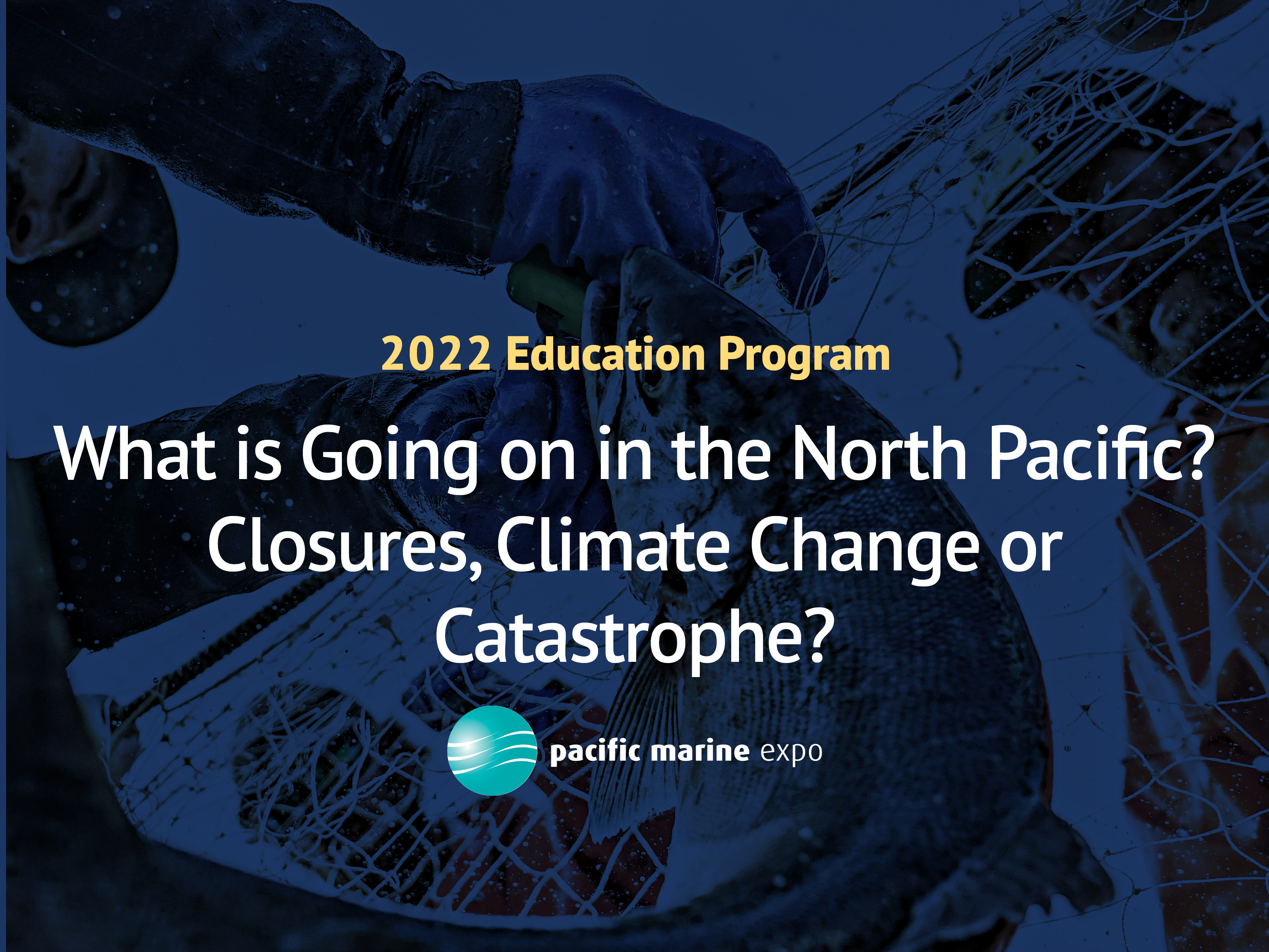November 14, 2022
2022 Education Program: What is Going on in the North Pacific? Closures, Climate Change or Catastrophe?

The North Pacific fishing industry has been hit with a devastating blow by the closure of Bering Sea snow and Bristol Bay red king crab seasons for 2022 – 2023. The latest from scientists is that climate change played a role. And while the crab is the current crisis, uncertainty in North Pacific fisheries has been growing. The Gulf of Alaska cod fishery was mostly closed in 2020 when the population suddenly dropped as a result of an extreme marine heat wave. Groundfish, cod, crab, and other species have moved farther north in warm, low-ice years. Salmon populations have seen record highs like Bristol Bay and record lows like Yukon-Kuskokwim within the same ocean basin.
This panel will explore the growing uncertainty in Alaska's Bering Sea fisheries, in part due to changing ocean conditions, with a focus on snow crab as a case study. We'll talk through positive steps forward and ways to take action. Both for an immediate situation like the Bering Sea crab fishery closures and longer-term for all U.S. fisheries. How do we expedite the federal fishery disaster process to protect fishing businesses during a crisis? How do we build more adaptive and flexible management systems to handle the growing uncertainty? We know steeply reducing carbon emissions is a central part of the solution – along with protecting natural habitats that pull carbon out of the atmosphere. What policies and technologies are emerging to meet the challenge? Are they fishery friendly? How can the seafood industry be part of the solution? The first step is to get closer to where the action is. This session will be an overview of policies both underway and in a discussion. Speakers will include scientists, policy specialists, and fishermen finding a positive path forward.






